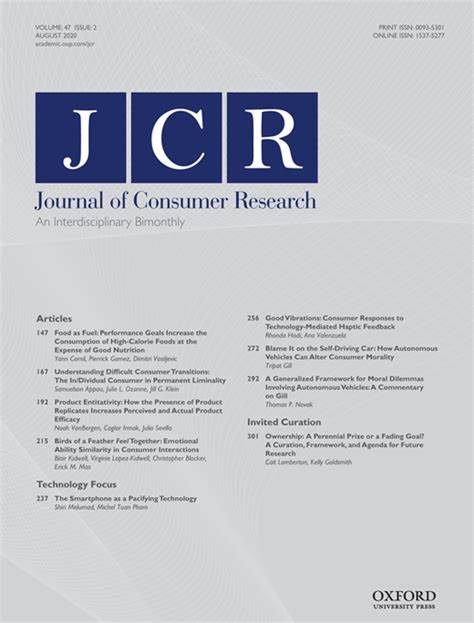Liquid Consumer Security
IF 6.4
1区 管理学
Q1 BUSINESS
引用次数: 0
Abstract
Systemic risks––pandemics, economic recessions, professional precarity, political volatility, and climate emergencies––increasingly erode previously taken for granted stabilities and consumers’ confidence in the future. How do consumers manage risk and uncertainty when economic and ontological security are on the decline? Traditionally, consumers have built a sense of security through solid consumption (e.g., home ownership, accumulating possessions). A four-year ethnography of digital nomadism, however, demonstrates that looming uncertainty can render solid consumption a source of vulnerability and an unwanted anchor in turbulent times that call for agility and adaptability. We outline the emergence of liquid consumer security, defined as a form of felt security that stems from avoidance of solid consumption and its risks and responsibilities. Liquid consumer security inheres in the absence of ownership, attachments, or rootedness, and is derived from circumventing the temporal demands, financial liabilities, and commitments that solid consumption requires, which emerge as sources of risk. It is achieved through a recursive process of engaging in three strategies: 1. Solid risk minimization; 2. Security reconstruction through the liquid marketplace, and 3. Ideological legitimation. Contributions to consumer risk and security, liquid consumption, social theories of risk, and digital nomadism are discussed.液体消费者安全
系统性风险——流行病、经济衰退、职业不稳定、政治动荡和气候紧急情况——越来越侵蚀以前认为理所当然的稳定和消费者对未来的信心。当经济和本体安全性下降时,消费者如何管理风险和不确定性?传统上,消费者通过稳定的消费(例如,拥有房屋、积累财产)建立了安全感。然而,一份为期四年的数字游牧民族志表明,在需要灵活性和适应性的动荡时期,迫在眉睫的不确定性会使固体消费成为脆弱性的来源和不必要的锚。我们概述了流动消费者安全的出现,它被定义为一种感觉安全的形式,源于避免固体消费及其风险和责任。流动的消费者安全存在于没有所有权、依恋或根基的情况下,源于规避稳定消费所需的时间需求、金融负债和承诺,而这些都是风险的来源。它是通过采用三种策略的递归过程来实现的:1。稳固的风险最小化;2.通过流动市场进行安全重建。意识形态合法化。讨论了对消费者风险和安全、流动消费、风险社会理论和数字游牧的贡献。
本文章由计算机程序翻译,如有差异,请以英文原文为准。
求助全文
约1分钟内获得全文
求助全文
来源期刊

Journal of Consumer Research
BUSINESS-
CiteScore
12.00
自引率
9.70%
发文量
53
期刊介绍:
Journal of Consumer Research, established in 1974, is a reputable journal that publishes high-quality empirical, theoretical, and methodological papers on a wide range of consumer research topics. The primary objective of JCR is to contribute to the advancement of understanding consumer behavior and the practice of consumer research.
To be considered for publication in JCR, a paper must make a significant contribution to the existing body of knowledge in consumer research. It should aim to build upon, deepen, or challenge previous studies in the field of consumption, while providing both conceptual and empirical evidence to support its findings.
JCR prioritizes multidisciplinary perspectives, encouraging contributions from various disciplines, methodological approaches, theoretical frameworks, and substantive problem areas. The journal aims to cater to a diverse readership base by welcoming articles derived from different orientations and paradigms.
Overall, JCR is a valuable platform for scholars and researchers to share their work and contribute to the advancement of consumer research.
 求助内容:
求助内容: 应助结果提醒方式:
应助结果提醒方式:


